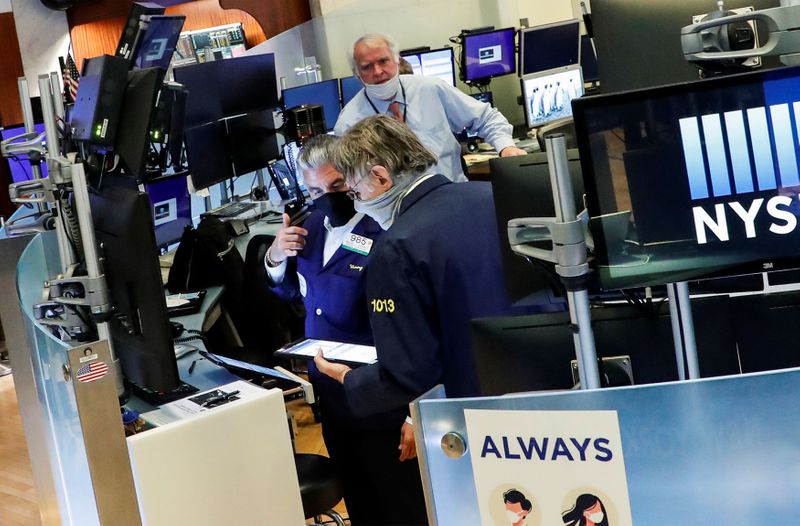NEW YORK (Reuters) – Shares of airlines, cruise lines and other companies that have been popular with investors on the Robinhood trading app shot higher on Friday, a day after stocks suffered their worst one-day market rout in about three months.
American Airlines Group Inc <AAL.O> and Delta Air Lines Inc <DAL.N> were up about 16% and 10% respectively, Carnival Corp <CCL.N> was up nearly 12%, and Norwegian Cruise Line Holdings Ltd <NCLH.N>, gained 14%. All are listed among the top 11 most-traded names on Robinhood, whose users some have tied to outsize moves in certain stocks recently.
The bounce was part of a broader equity rebound: The S&P 500 <.SPX> was recently up around 1.7%, after notching its worst loss since March the day before.
Retail investors have grabbed the spotlight in recent months, as markets have rallied in the middle of the coronavirus pandemic.
Some traders and analysts have attributed rallies of between 300% and 500% in stocks of bankrupt or soon-to-be-bankrupt companies such as Hertz <HTZ.N>, Chesapeake <CHK.N>, Whiting <WLL.N> and JC Penney last week to individual investors. The unpredictable moves have left some professionals avoiding the stocks of companies popular on Robinhood.
Mark Travis, a portfolio manager at Intrepid Capital, has stayed away from airlines and other stocks that appear to have drawn retail buyers.
“With no sports right now, people have turned to day trading as their new sport,” he said. “There’s a lot of speculation in the market now.”
Others, however, have doubts whether retail investors have been a major force in a rally that has seen the S&P 500 climb around 40% from March lows.
An analysis by Barclays comparing Robinhood customer holdings to daily returns for S&P 500 constituents found that “all else equal, more Robinhood customers moving into a stock has corresponded to lower returns, rather than higher,” the bank said in a recent note.
(Reporting by John McCrank and David Randall; Editing by Ira Iosebashvili and Jonathan Oatis)



















